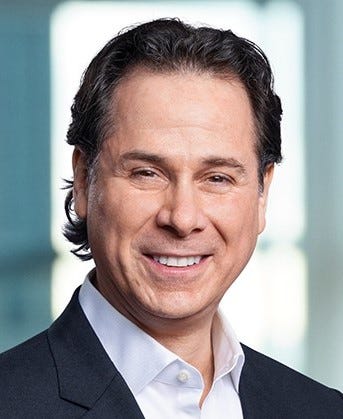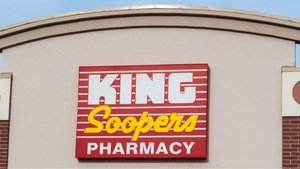A forum for contributed pieces from industry thought leaders, retailers, wholesalers and manufacturers. The views expressed are those of the authors.
5 things you might not have known about the Kroger, Albertsons merger decision5 things you might not have known about the Kroger, Albertsons merger decision
And how the courts got it wrong

After spending two years on Albertsons’ behalf trying to educate different constituencies across the country on the realities of American grocery and how much it has changed in the past 20 years, I attended most of the FTC’s Kroger-Albertsons federal trial in Portland, Ore., late this past summer. I thought it imperative to be there not only to recognize two years of extremely hard work and earnest dedication by a long list of grocery teammates and advisory partners, but also to bear witness to one of the most pivotal grocery events in our lifetime—in the room where it happened.
The trial was riveting (at least to me) and, in many ways, a solemn experience. I took copious notes so I would be able to make sure the record was clear at this inflection point that could profoundly impact grocery’s strategic landscape for many years, potentially directing which “supermarkets future” is in store for America.
A great deal has been written about the trial and decision which I will not attempt to replicate, and while it did not seem appropriate to share any perspective before the decision, it now seems important to document a few key trial takeaways I witnessed, including, a few things you might not know.
Case built on false premise that grocers are responsible for food inflation
The foundation of the FTC’s case—literally the very first point it made in its opening statement—purported to address the demonstrably false notion that supermarket grocers have been responsible for post-COVID food inflation. As everyone in the grocery industry well knows, this is simply not accurate.
Many one-stop grocery shopping alternatives to supermarket grocers
Executives from Walmart, Costco, Amazon, Whole Foods, and Target all clearly confirmed in their testimony that they actively compete with Kroger, Albertsons, and numerous other grocers for U.S. grocery sales. They all clearly confirmed that they all offer one-stop grocery shopping to their customers, even though most Americans in 2024 regularly shop at four to seven grocers, not just one.
The FTC and court ignored this indisputable testimony, as well as the fact that online grocery is the means by which millions of Americans shop for groceries, whether at one grocer or several.
Ironically, in the area immediately around the Portland, Ore., federal courthouse, there are over 20 grocers serving consumers, most of which deliver: Walmart has several stores in the vicinity (all deliver); Amazon Fresh, Whole Foods, and Amazon Prime (all deliver); four WinCo stores (all deliver); Trader Joe’s is nearby; and over a dozen different Instacart grocery delivery choices, including Costco, Target, 99 Ranch, Grocery Outlet, New Seasons, Natural Grocers, CVS, Walgreens, Rite Aid, Chef’s Store, Restaurant Depot, and Jackson’s Food Stores, along with Kroger- and Albertsons-owned banners.
The FTC excluded most of these grocers from the “supermarkets market” it put forth; the court accepted this as the basis of its decision.
Ignoring Kroger’s lower price track record and commitments
Kroger’s CEO, Rodney McMullen, was explicitly clear in his testimony: “The day that we merge is the day that we will begin lowering prices,” as he reiterated the company’s commitment to lower prices for customers by $1 billion per year. As evidence of Kroger's ability to deliver on this promise, McMullen discussed the company’s long track record of investing in lower prices over the past 20 years.
The FTC and court ignored Kroger’s commitments and track record.
“A gift” to Walmart, Costco and other global grocers
Albertsons’ CEO, Vivek Sankaran, testified that blocking the merger would be a huge loss to communities and would be “a gift” to Walmart, Costco, and other larger grocery competitors.
It surely is. Walmart and Costco are the world’s No. 1 and No. 2 grocers.
Political storm clouds block “sunlight” of grocery reality
Justice Louis Brandeis once wrote “sunlight is the best disinfectant.” Unfortunately, we live in a time where politicians and their agents routinely transform facts and obfuscate the truth to fit a narrative that is politically expedient. The debate about the Kroger, Albertsons merger became nakedly political at precisely the worst time, ahead of a presidential election.
I had hoped that the “sunlight” of incontrovertible grocery facts and the earnest and oft-repeated public commitments from trusted leaders like Rodney McMullen, Vivek Sankaran, C&S’ CEO Eric Winn, and Albertsons’ COO Susan Morris (who was to lead the expanded C&S retail business) would have disinfected the FTC’s gross mischaracterizations amid the storm of misdirected political winds gusting behind them. It seems I was wrong.
Irrespective of your politics—whatever you think about tax policy, social issues, climate change, or America’s place in the world—the politicization of our industry is awful and, in many cases, just plain ignorant.
In the wake of this decision, numerous politicians are celebrating the result, usurping credit for preventing a transaction that they disingenuously claim would have raised grocery prices, even though the facts clearly suggest it would have lowered prices, raised wages, and strengthened the stores’ ability to compete with national/discount grocers (which now command ~66% U.S. grocery share—and growing fast). I suspect many of those with the loudest voices, those spouting the most preposterous talking points, could not answer basic questions about the history, operations, or economics of our industry.
Some people seem to suggest that America’s supermarket grocers operate on some island, insulated from Walmart, Costco, and Amazon, the same forces that disrupted and destabilized department stores—they do not.
In 2024 (as opposed to 1984), it is plainly evident that in the vast majority of markets, supermarket grocers primarily compete not with each other, but with these and other national/discount grocers. The willfully blind, gerrymandered view to the contrary is highly misleading and irresponsibly impedes supermarket grocers’ ability to build the scale required to remain vibrant in the long run for customers, teammates, and communities.
If we’re not careful, we will lose many of them, and many people will wish they’d have contributed more informed and balanced perspective during this sensitive time.
About the Author
You May Also Like






